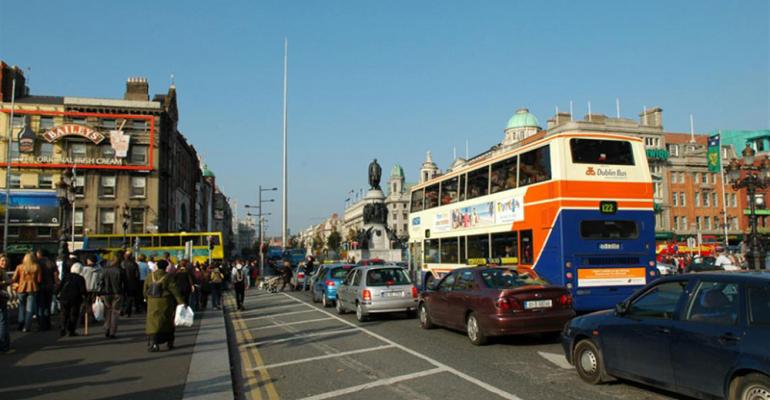Ireland’s beleaguered new-vehicle industry is facing a new threat of being taxed into irrelevance.
Transport Minister Leo Varadkar says he likes proposals in a department paper calling for new tolls and higher taxes to get motorists out of their vehicles and into public transport.
Varadkar says policies and measures including taxation will be needed to make the transport sector less polluting and reduce Ireland’s dependence on imported fossil fuels.
“Developing a roadmap for the transport sector will be challenging,” he says in a foreword to the report.
“Cleaner fuels will have to be embraced, adaptations made, mitigation measures implemented and new technologies embraced. We will need to employ many policies and measures, such as land-use planning and taxation, to effect this change. Market forces will also play a significant role.”
The department paper, “Climate Change Mitigation,” says encouraging people to get out of their cars and into public transport could be achieved through the introduction of user-pays charges.
New European Union figures show the Irish have the second-highest car-usage rate and rarely ride public transport.
An EU Eurobarometer survey indicates 68% of Irish people admit driving every day and only 8% use public transport on a daily basis. This is the highest in the EU after Cyprus at 80%.
Varadkar says while tackling climate change should not result in a reduced standard of living, it will require changes to how and where people live.
He calls climate change one of the major challenges of this generation.
Ireland has to meet EU targets to reduce overall carbon emissions 20% by 2020. It also must source 20% of all energy from renewables and reduce energy use 20% by then.
Public and Commuter Transport Minister Alan Kelly launched the public-consultation process on the preparation of a low-carbon roadmap for the transport sector.
“We will all be required to make significant changes to our transport habits and change our behavior over the next half-century, but with the deployment of technology, behavioral change and use of alternative fuels, we can be confident our transport sector will be able to transform itself sufficiently to deal with this problem,” he says in a statement.
The consultation is one phase of a process that will establish a low-carbon plan for the transport sector between now and 2050.
“We now recognize that current travel and transport trends in Ireland are not sustainable, and we need to provide better alternatives for people by 2050,” Kelly says.
The report says transport demand in Ireland is completely dominated by the car. In terms of distance traveled, a 2009 national travel survey found car drivers accounted for about 71% of total miles travelled, followed by car passengers (12%), van/truck/other (8%), rail (3%), bus (4%) and walking (2%).
The main contributor to dramatic reductions in greenhouse-gas emissions from transport, it says, likely will be improvements in the efficiency of motorized transport – primarily through fuel and vehicle technology. Because Ireland does not have a car-manufacturing sector, such innovation largely is outside of its control.
“One option for managing travel demand is the application of ‘user-pays’ or ‘polluter-pays’ principles to the transport sector,” the report says. “This would be expected to result in significant reductions in emissions relative to a business-as-usual case where there are relatively large upfront costs to vehicle ownership and relatively lower costs associated with vehicle use.”
The report also predicts significant behavioral change to personal travel options will be required to secure a low-carbon future for Ireland.
“The extent to which people will switch from the car to other modes of travel will depend on viable, reliable and accessible alternatives,” it says. “The overall aim of the policy is to reduce distances traveled by private car and to encourage smarter travel.”





